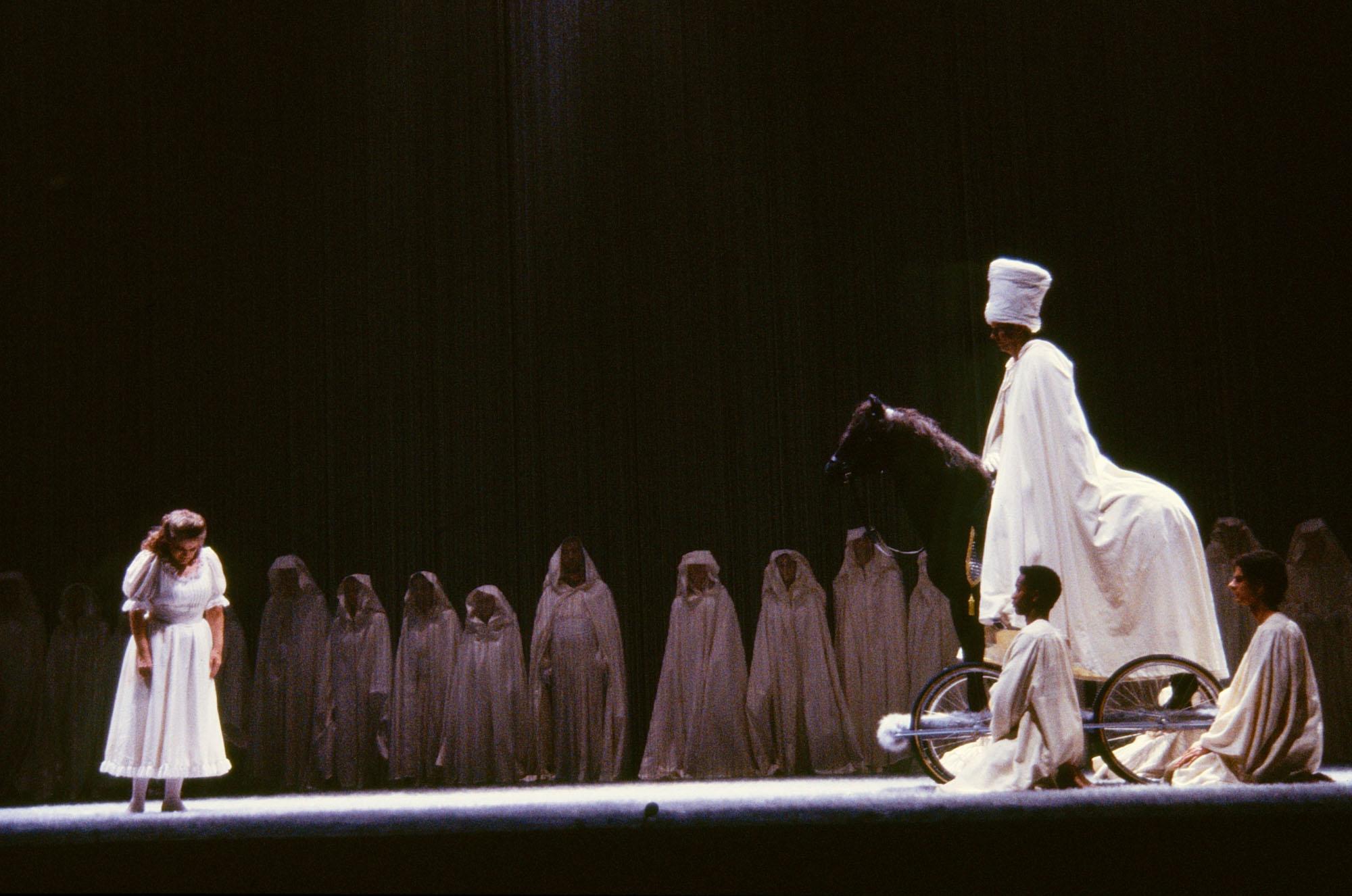TRIBUTE TO JORGE LAVELLI (1932-2023)
Share
The Festival d'Aix-en-Provence was saddened to learn of the death of Jorge Lavelli on 9 October 2023. Born in 1932 in Buenos-Aires, he arrived in Paris in the 1960s, where he founded the Théâtre de la Colline in 1977, a few years after becoming a naturalised French citizen. The stage director of Argentinian origin was one of the most important in his field of his time, and a great companion of the Festival. In the 1970s and 1980s, he staged six operas in the courtyard of the Théâtre de l'ancien Archevêché, helping to establish the Festival d'Aix as a major venue for opera production, accompanied by advanced dramaturgical thinking.
1975 was the year of the great operatic revelations of his work: Idomeneo at the Opéra d'Angers, his revolutionary Faust at the Opéra national de Paris, and André Campra's Le Carnaval de Venise at the Festival d'Aix-en-Provence. Bernard Lefort, who had just taken over the Festival in 1974, wanted to broaden its repertoire and renew its image: with this work, in which Lavelli gives a spirited reading, audiences in Aix rediscovering baroque music in a new light.
The collaboration between Lefort and Lavelli at the Festival was a rich one: like Patrice Chéreau and Peter Brook, Lavelli was one of those artists who have given opera a fresh look at the works in the repertoire, sometimes through a critical historical approach – a Violetta sung by Sylvia Sass, broken by 19th-century bourgeois society (La Traviata, 1976), or a black Susanna played by Barbara Hendricks oppressed by her bourgeois masters at the beginning of the twentieth century (Le nozze di Figaro, 1979) –, and sometimes through a poetic reading of the music and Baroque worlds – as in Le Carnaval de Venise or Alcina (1978). Teresa Berganza (Ruggiero) and Christiane Eda-Pierre (Alcina) share the bill in a dark scenography, imbued with the atmosphere of an imaginary Middle Ages, which bewitched the Festival. At the opening of his first season as director of the Opéra national de Paris, Bernard Lefort entrusted him with the staging of Rameau's Dardanus in 1980, following on from the trust he had built up at the Festival d'Aix.
Jorge Lavelli's adventure at the Festival continued under the direction of Louis Erlo, as he continued to explore the works of Mozart. Die Zauberflöte in 1989 and Die Entführung aus dem Serail in 1990 added to the rich list of his collaborations, many of them with his friend, set and costume designer Max Bigens (the huge banqueting table in La Traviata, the enormous glass and metal windows in Le nozze, the moving Egyptian temples in Die Zauberflöte). These shows, with their magical or monumental scenographies, have helped to build the Festival d'Aix-en-Provence's scenic identity and to renew approaches to opera by allowing singular and reflective visions of the works in the repertoire, while immersing the audience in modern ways of thinking.
WATCH
A report on the premiere of Alcina in 1979 at the Festival d'Aix-en-Provence
READ
An interview with Christiane Eda-Pierre given in 2015 for the Festival d'Aix-en-Provence

Die Zauberflöte de Mozart, Festival d’Aix-en-Provence 1989 © Ville d'Aix